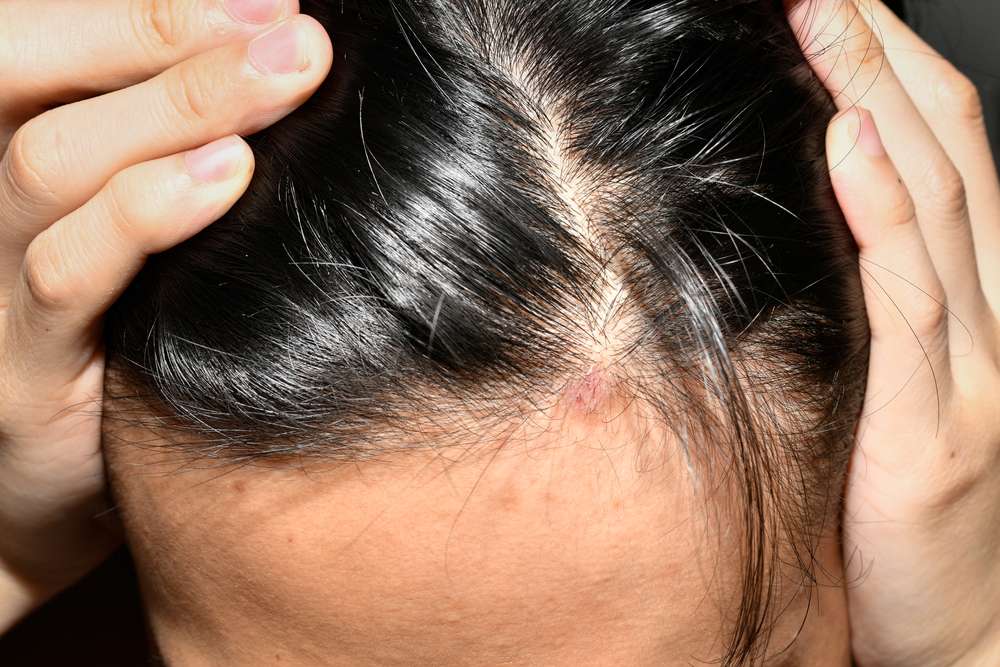Scalp Psoriasis: Causes, Symptoms and Treatment Guide
Scalp psoriasis affects millions and can cause red, itchy, scaly patches that are both uncomfortable and visible. This guide explains common causes, how to recognize symptoms, diagnostic steps, and proven treatments—from topical therapies and light therapy to systemic drugs and lifestyle changes—to help you manage flare-ups and improve quality of life. Learn when to see a doctor and practical tips for everyday relief.

Scalp psoriasis is a chronic skin condition that commonly produces red, inflamed patches covered with silvery scales on the scalp. While there’s no cure, understanding what triggers flare-ups and exploring appropriate treatments can greatly reduce symptoms and help maintain comfort and confidence.
What causes scalp psoriasis?
Several factors can increase the likelihood of developing scalp psoriasis or provoke flares:
- Genetics: A family history of psoriasis is a strong risk factor. If relatives have psoriasis, your risk is higher.
- Emotional stress: Psychological stress often precedes or intensifies outbreaks.
- Infections: Certain infections, such as streptococcal throat infections, can trigger psoriasis in some people.
- Climate: Cold, dry weather tends to worsen symptoms, while warmth and humidity can provide some relief.
- Medications: Drugs like lithium and some beta-blockers have been associated with triggering or exacerbating psoriasis.
Being aware of these triggers helps you and your clinician design a plan to reduce flare frequency and severity.
Recognizing symptoms
Symptoms of scalp psoriasis vary from mild flaking to severe plaque build-up. Typical signs include:
- Red, raised, inflamed areas on the scalp
- Thick, silvery-white scales or plaques
- Persistent itching or a burning sensation
- Dry flakes that may be mistaken for dandruff
- Temporary hair thinning or hair loss in more intense cases
- Bleeding or oozing when thick scales are forcibly removed
- Tenderness or soreness in affected patches
Psoriasis can spread beyond the hairline to the forehead, neck, and around the ears, so a careful inspection is helpful for accurate assessment.
How is scalp psoriasis diagnosed?
Diagnosis usually begins with a clinical evaluation by a dermatologist or primary care provider. Steps often include:
- Physical exam: Visual inspection of the scalp and other skin areas to identify characteristic plaques.
- Medical history: Discussion of symptom history, family history, known triggers, and prior treatments.
- Skin biopsy: In ambiguous cases, a small sample may be examined under a microscope to confirm psoriasis and rule out other conditions.
- Excluding other causes: Conditions like seborrheic dermatitis, fungal infections, and eczema can mimic scalp psoriasis, so the clinician will differentiate among them.
Early and accurate diagnosis enables faster relief and prevents complications.
Effective treatment options
Treatment aims to reduce inflammation, slow excess skin-cell production, and ease itching. Often a combination of approaches is most effective and should be tailored to disease severity and personal needs.
Topical therapies
- Corticosteroids: Prescription-strength steroid creams, foams, or solutions (e.g., clobetasol) reduce inflammation and itching.
- Vitamin D analogues: Agents like calcipotriene help normalize skin-cell growth.
- Salicylic acid: Helps loosen and remove thick scales for better penetration of other treatments.
- Coal tar: Available in shampoos and topical formulations, coal tar reduces scaling and inflammation.
Light-based treatments
- Phototherapy: Supervised UVB exposure can slow down rapid skin turnover.
- Excimer laser: A targeted light therapy option for stubborn localized plaques on the scalp.
Systemic medications
- Oral immunosuppressants: Drugs such as methotrexate or cyclosporine are reserved for severe or widespread disease.
- Biologic agents: Injectable medications (for example, adalimumab/Humira) target specific immune pathways and are effective for many individuals with moderate to severe psoriasis.
Lifestyle and supportive care
- Stress management: Relaxation techniques, counseling, and stress reduction strategies can lower flare frequency.
- Gentle scalp care: Avoid harsh hair products and vigorous scratching. Regular moisturizing helps reduce flaking.
- Medicated shampoos: Products containing coal tar, salicylic acid, or medicated formulations used as directed can control scales.
When to see a healthcare provider
Seek professional care if:
- Symptoms are severe or getting worse despite over-the-counter measures
- OTC treatments fail to bring relief or scales recur quickly
- The condition is affecting daily life, work, or emotional well-being
- Signs of infection appear (fever, increasing redness, swelling, or pus)
- You’re experiencing notable hair loss or other complications
A dermatologist can confirm the diagnosis, rule out other scalp conditions, and recommend prescription medications or advanced therapies when necessary.
| Treatment Type | Provider/Product | Key Features | Cost Estimation |
|---|---|---|---|
| Topical Corticosteroid | Clobetasol (prescription) | Potent anti-inflammatory for rapid symptom relief | $30-$60 per tube |
| Vitamin D Analogue | Calcipotriene (prescription) | Slows abnormal skin-cell growth | $100-$200 per bottle |
| Coal Tar Shampoo | Neutrogena T/Gel | OTC option to reduce scaling and itching | $10-$20 per bottle |
| Phototherapy | Dermatology clinics | Professional UVB or excimer laser sessions | $50-$100 per session |
| Biologic Medication | Humira (adalimumab) | Injectable; targets immune pathways | $5,000-$7,000 per month |
Prices, rates, or cost estimates mentioned in this article are based on the latest available information but may change over time. Independent research is advised before making financial decisions.
Living with scalp psoriasis can be challenging, but many people achieve meaningful control through a tailored mix of treatments and self-care. Regular follow-up with a healthcare provider ensures your regimen is effective and adjusted as needed. With the right strategy, most individuals can reduce itching, limit scale formation, and improve their day-to-day comfort.
This article is for informational purposes only and should not be considered medical advice. Please consult a qualified healthcare professional for personalized guidance and treatment.






